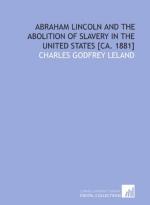|
This section contains 6,409 words (approx. 22 pages at 300 words per page) |

|
SOURCE: Rice, C. Duncan. “Literary Sources and the Revolution in British Attitudes to Slavery.” In Anti-Slavery, Religion, and Reform: Essays in Memory of Roger Anstey, edited by Christine Bolt and Seymour Drescher, pp. 319-34. Folkestone, Kent, England: Wm. Dawson & Sons, 1980.
In the following essay, Rice argues that English attitudes toward slavery can be understood by examining how the subject was treated in British literature in the eighteenth and nineteenth centuries, and concludes that the transformation of how slaves and slave-owners were depicted during this period is evidence of a cultural revolution in English thought.
During the century between the Seven Years' War and the American Civil War, a complete revolution in Western attitudes opened the way to the downfall of slavery. Moses Finley has observed that ‘throughout most of human history, labour for others has been performed in large part under conditions of bondage.’1 Adam Smith would have...
|
This section contains 6,409 words (approx. 22 pages at 300 words per page) |

|


